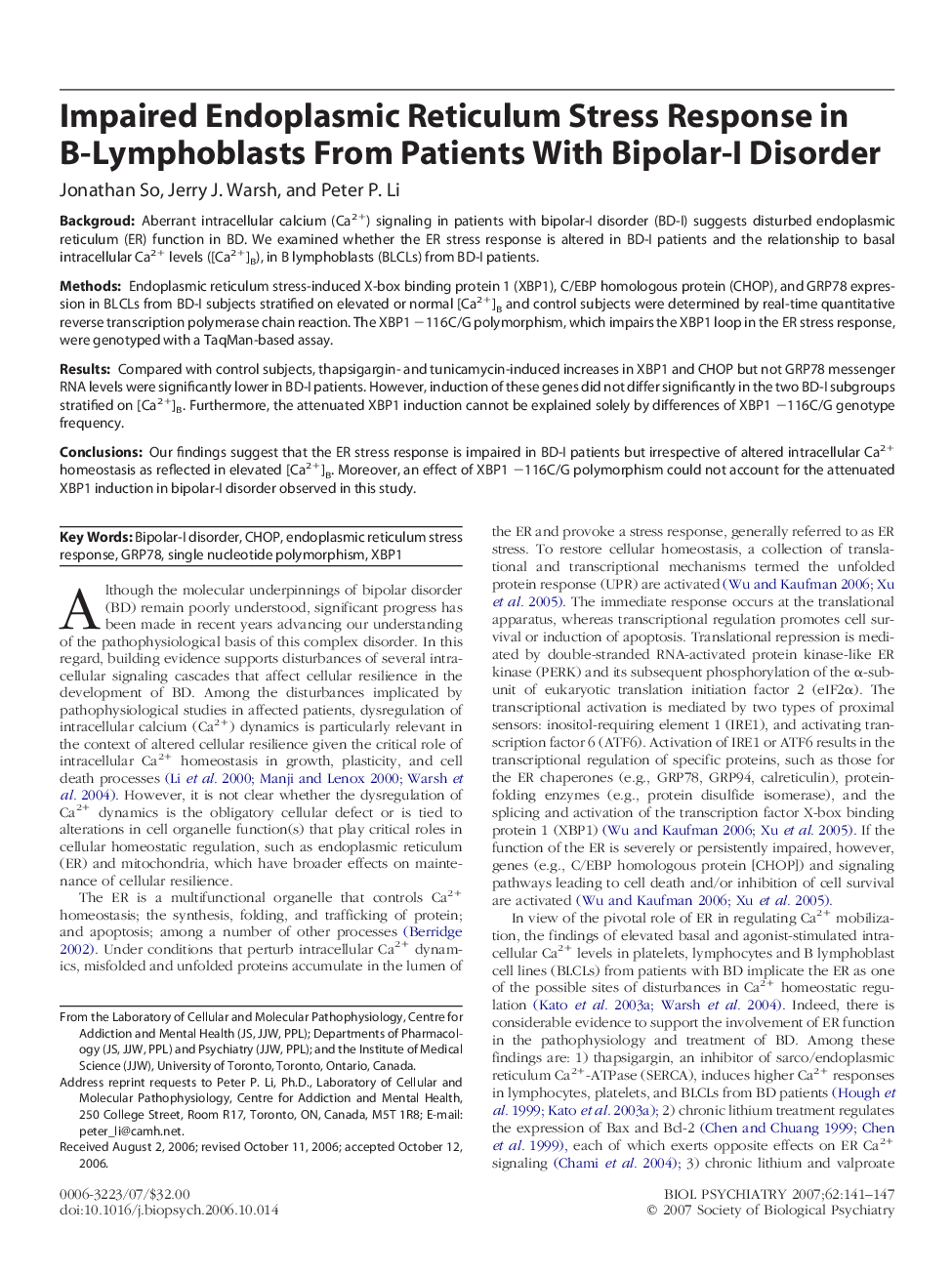| Article ID | Journal | Published Year | Pages | File Type |
|---|---|---|---|---|
| 4180961 | Biological Psychiatry | 2007 | 7 Pages |
BackgroudAberrant intracellular calcium (Ca2+) signaling in patients with bipolar-I disorder (BD-I) suggests disturbed endoplasmic reticulum (ER) function in BD. We examined whether the ER stress response is altered in BD-I patients and the relationship to basal intracellular Ca2+ levels ([Ca2+]B), in B lymphoblasts (BLCLs) from BD-I patients.MethodsEndoplasmic reticulum stress-induced X-box binding protein 1 (XBP1), C/EBP homologous protein (CHOP), and GRP78 expression in BLCLs from BD-I subjects stratified on elevated or normal [Ca2+]B and control subjects were determined by real-time quantitative reverse transcription polymerase chain reaction. The XBP1 −116C/G polymorphism, which impairs the XBP1 loop in the ER stress response, were genotyped with a TaqMan-based assay.ResultsCompared with control subjects, thapsigargin- and tunicamycin-induced increases in XBP1 and CHOP but not GRP78 messenger RNA levels were significantly lower in BD-I patients. However, induction of these genes did not differ significantly in the two BD-I subgroups stratified on [Ca2+]B. Furthermore, the attenuated XBP1 induction cannot be explained solely by differences of XBP1 −116C/G genotype frequency.ConclusionsOur findings suggest that the ER stress response is impaired in BD-I patients but irrespective of altered intracellular Ca2+ homeostasis as reflected in elevated [Ca2+]B. Moreover, an effect of XBP1 −116C/G polymorphism could not account for the attenuated XBP1 induction in bipolar-I disorder observed in this study.
